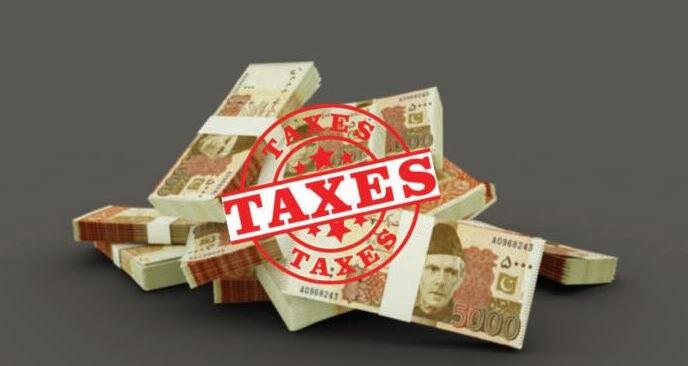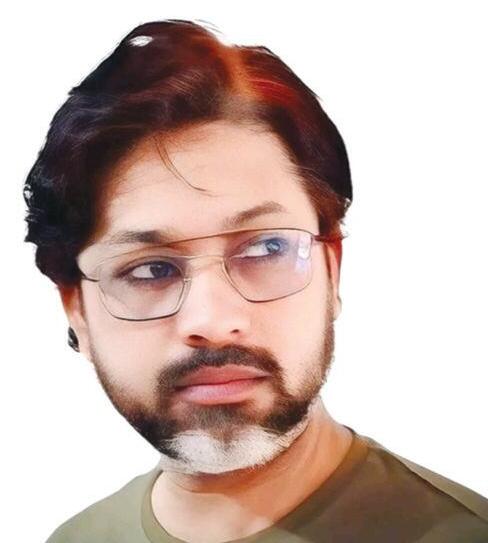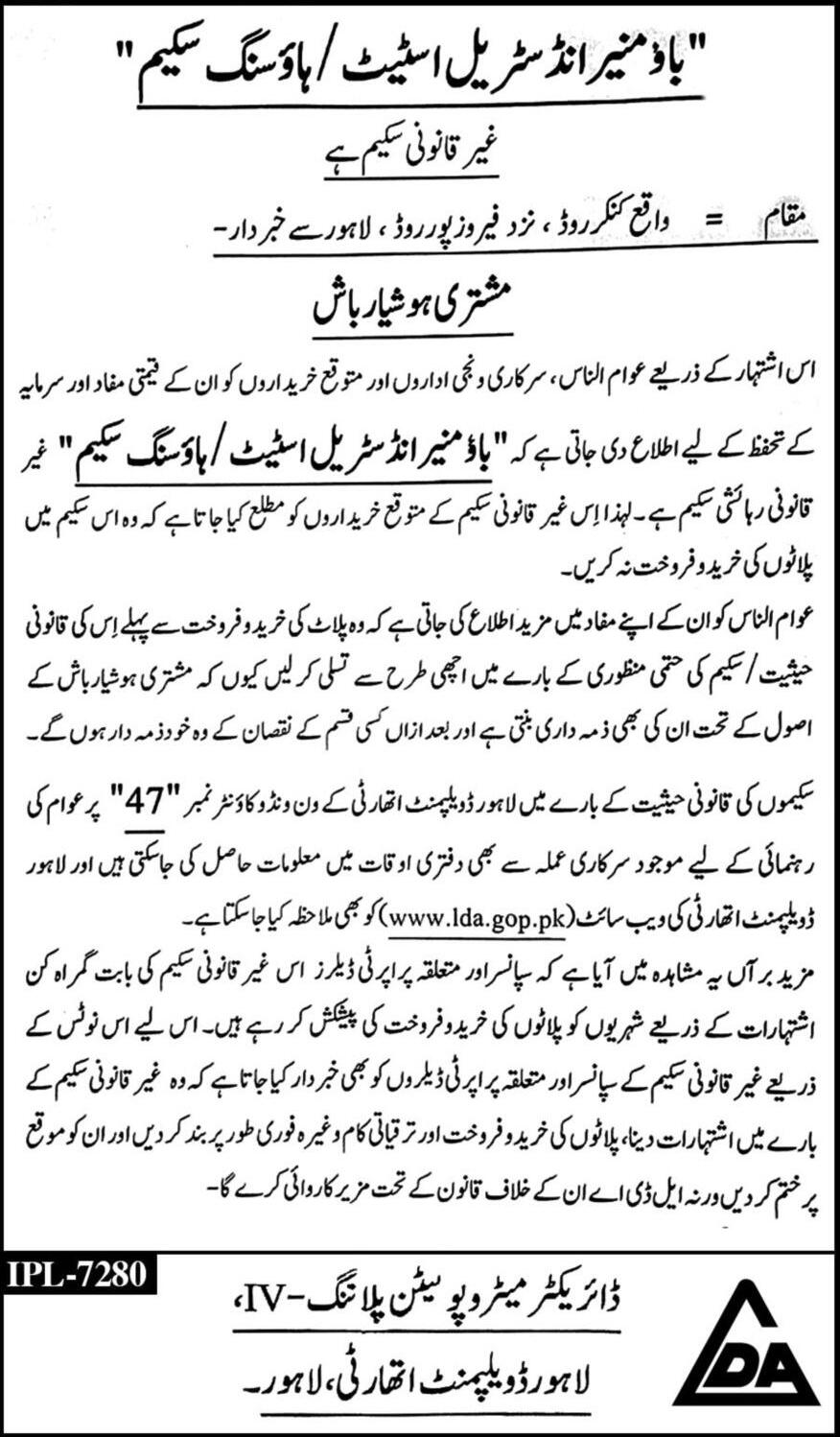party
tional
Trumpus and
‘It is attack on Constitution, SC ’: PTI announces to challenge controversial Election Act
session in the National Assembly, PTI’s Ali Muhammad Khan criticized the legislation claiming it was a tactic to undermine the Supreme Court He argued that the law infringes on fundamental rights and deprives members of the freedom to change their political allegiance Khan emphasized that while legislation is necessary
Senate also witnessed ruckus as Pakistan Muslim League-Nawaz s (PML-N) Senator Talal Chaudhry presented the amendment bill The PTI senator strongly opposed the bill and called it an attack on Constitution and the Supreme Court The NA earlier in the day approved a bill proposing amendments to the Elections Act 2017 to bar lawmakers from changing their party affiliation amid strong resistance from opposition benches who termed the legislation “unconstitutional” L E G I S L AT I O N I N T R O D U C E D I N BAD FAITH AGAINST PTI: Senator Shibli Faraz, while addressing the Senate sharply criticised the Election Commission of Pakistan (ECP), stating that the electoral body is known as the selection commission rather than the election commission
Finance Ministr y proposes amendments to SOEs Act 2023
rums for dispute resolution except with prior federal approval for dealings with foreign governments or entities
are competency frameworks rather than procurement standards
Finance and Revenue Minister Senator Muhammad Aurangzeb has acknowledged a significant trust deficit with international donors as Pakistan awaits the release of pledges made to aid in
The Ministry of Finance is working on amendments to the StateOwned Entities (SOEs) Act 2023 to align it with international law and prevent local firms from signing agreements involving international arbitration Since the promulgation of the SOE Act 2023, various agencies, ministries, and SOEs have faced issues interpreting and implementing the law The Finance Ministry s Corporate Finance (CF) Wing has received several proposals for amendments to bring more clarity and ease of implementation As per a news report, one key issue under consideration is the prohibition on federal SOEs designating foreign forums for arbitration, even for disputes with other federal or provincial SOEs
The proposed amendment states that SOEs should not enter into agreements specifying foreign fo-
The Finance Ministry also noted the need to refine several definitions and sections of the Act for better clarity and consistency with other laws such as the Companies Act
Section 10(3): Removing the requirement for notifying procedures by the Board Nomination
Committee (BNC) to reduce administrative burdens
Section 12: Reviewing the inclusion of the CEO on the Board of a Company to maintain the separation of board and management
Section 13(2): Revising stringent criteria for the disqualification and removal of independent directors
Section 17(2): Omitting references to the Global Standards of Procurement and Supply as they
WASHINGTON R E U T E R S A Pakistani man with alleged ties to Iran has been charged in the United States in connection with a foiled plot to assassinate a US politician or government officials, the Justice Department said on Tuesday Asif Merchant, 46, sought to recruit people in the United States to carry out the plot in retaliation for the US killing of Iran s
The amendments also address synchronization between the Act and the SOE Policy, particularly regarding the roles of the BNC and SECP in applying the Fit and Proper criteria for board appointments
Additionally the logic behind the inclusion of specific entities in Schedule 1, and the synchronization of the roles of the Privatisation Commission with the provisions of the PC Ordinance 2000 are to be reviewed
The first phase of these amendments focuses on five ministries, with reports due by August 2 and August 12, 2024
The committee is also reviewing the performance of SOEs identifying 84 entities with 55 under review and determining which are essential, strategic, or slated for privatisation The Finance Ministry is expected to present a detailed update in the next cabinet meeting
ISLAMABAD
Islam’s teachings highlighted at Pak-S audi conference in c apital
to PTI founder They have also requested that the facilities provided to PTI founder Imran Khan and former foreign minister Shah Mahmood Qureshi and other political prisoners be reviewed and extended to all prisoners
YORK
The Consulate General of Pakistan in New York, in collaboration with the Permanent Mission of Pakistan to the United Nations, held an event to commemorate the 5th anniversary of Youm-e-Istehsal on Tuesday
The event brought together senior diplomats members of the Kashmiri and Pakistani communities and distinguished guests to express solidarity with the people of Indian Illegally Occupied Jammu and Kashmir (IIOJK) and to highlight the ongoing human rights violations in IIOJK
Consul General Aamer Atozai in his remarks, emphasized the significance of the day and the continued struggle of the Kashmiri people for their right to selfdetermination In his keynote address H E Ambassador Munir Akram Permanent Representative of Pakistan to the United Nations highlighted the grave human rights
abuses being perpetrated in IIOJK and called on the international community to take immediate and concrete steps to address the situation and uphold the rights of the Kashmiri people Various other speakers included Senator Lt Gen (Retd) Abdul Qayyum, Ambassador Hameed Opeloyeru (Permanent Observer of OIC), Dr Ghulam Nabi Fai (Secretary General World Kashmir Awareness Forum) and Mr Abdul Hamid Siyam (Senior Journalist)
The speakers underscored the illegal and unilateral measures taken by India to alter the demographic and political landscape of Jammu and Kashmir in violation of international law and UN Security Council resolutions and emphasized the need for international intervention to resolve the Kashmir issue A photo exhibition was organized to highlight the relentless atrocities committed by Indian Occupation Forces in the Indian Illegally Occupied


Th E Awami League has lost office in Dhaka after just over q15 years of uninterrupted rule and its leader Sh hasina Wazed has resigned and fled to india instead pf resigning and handing over t0 a Cabinet member as Acting PM, she handed over to the Chief of Army Staff who had himself taken over only in June She thus turned the present change into a military coup and revived memories of Ayub Khan, who resigned as Pakistan s President in 1968, but instead of handing over to the national Assembly Speaker (who was an East Pakistani) handed over to the Commander-in-Chief Gen yahya Khan as President and CMLA/ it does represent something pf an advance in Bangladesh, because previous coups notably the ones removing Sh Mujibur Rehman and President Ziaur Rehman had involved their assassination This does involve the most direct intervention by the military since Lt Gen h/M Ershad s takeover The last intervention was in the form of backing for the President s extension of the caretaker government to two years during the 2006-3008 crisis, which ended only with the election of the Awami League to power Once the caretaker provision was ended Sh haina won all three ensuring elections handily First the quotas issue arose with students all over the country protesting the quotas in government jobs for descendants pf 1971 War veterans, which was widely seen as a bacldooor way for the Awami League to retain loyalties indefinitely After the students were apparently cowed down after over 300 were killed by police firing, protests broke out again last week, with about 100 killed countrywide but now with a wider scope: removal of the government League supporters claimed the opposition BnP and its allies were behind the protests, and they might be right, but there was no other way they could have to oust the government One thing is clear: Banpartists around the world should be encouraged Whether army officers in South America or Africa feel the need to save their country, lovers of democracy should also remember that popular protests as in Bangladesh mean the military cannot be relied on to keep someone in power if there is no popular consent Meanwhile, what of Bangladesh? The

M A Niazi Editor Pakistan Today Babar Nizami Editor
Q u e s t i o n s t h a t m u s t b e a s k e d
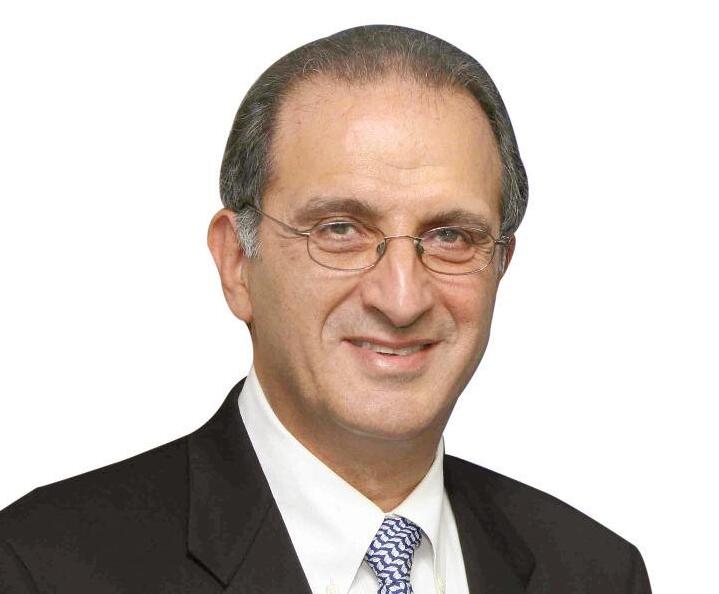
Wh y i n the midst of critical negotiations to implement President Biden s plan to bring about a ceasefire in Gaza, release israelis held captive by hamas and a significant number of Palestinians held by israel and move toward a negotiated permanent end to the conflict would israeli leader Benjamin netanyahu decide to assassinate the chief hamas negotiator while he was visiting iran? And why while the USA says it was working to deescalate tensions with Lebanon s hezbollah would israel choose to up the ante by assassinating hezbollah’s number two? We know the answers to both questions: Benjamin netanyahu isn t interested in peace he doesn t want a negotiated deal to release hostages and end the war on Gaza he doesn t want to de-escalate the conflict there or in the north with hezbollah And he most certainly doesn’t want a “two-state solution” that would grant the Palestinian people independence in a sovereign state of their own There are two things netanyahu does want and at this point both are perversely connected Above all he desperately wants to remain in office because should he lose his post as prime minister, the prosecution of the corruption charges against him will continue in full force As the charges are so serious and the evidence so clear he will likely be convicted and humiliated This is not speculation it’s widely discussed in israel and was even hinted at by President Biden in a May 28 interview with Time magazine When he was asked is netanyahu prolonging the war for political reasons? Biden responded, There is every reason for people to draw that conclusion ” The second reason is that netanyahu wants the war to continue and even be accelerated he made this clear in his remarks before Congress and in an address to the israeli public a few days ago he seeks total victory which he defines as more than the military defeat of israel s enemies Without acknowledging any israeli culpability, he charged that the Palestinians had created a hate-filled culture which in the post-war period would require massive deradicalization the outcome of which would have Palestinians accepting Jewish hegemony in Eretz is-
rael and understanding their place as a conquered and subordinate people This is the messianic Zionist vision that has long driven netanyahu and which he now sees as possible but only if all of israel s enemies meaning iran and its surrogates are brought to heel And this can only be realized if israel can involve the USA in its regional conquest netanyahu’s worldview raises several additional questions that must be considered if we know that netanyahu has never accepted the terms of the Biden plan why has the President continued to maintain that it was israel s plan and placed the burden on hamas to accept it? And if we know that netanyahu is unwilling to make any peace agreement for fear of losing his other extremist coalition partners (who have threatened to abandon his government should he accept any terms leading to peace) why do we continue to dance around that fact? Why hasn’t the Administration condemned the assassinations in Beirut and iran
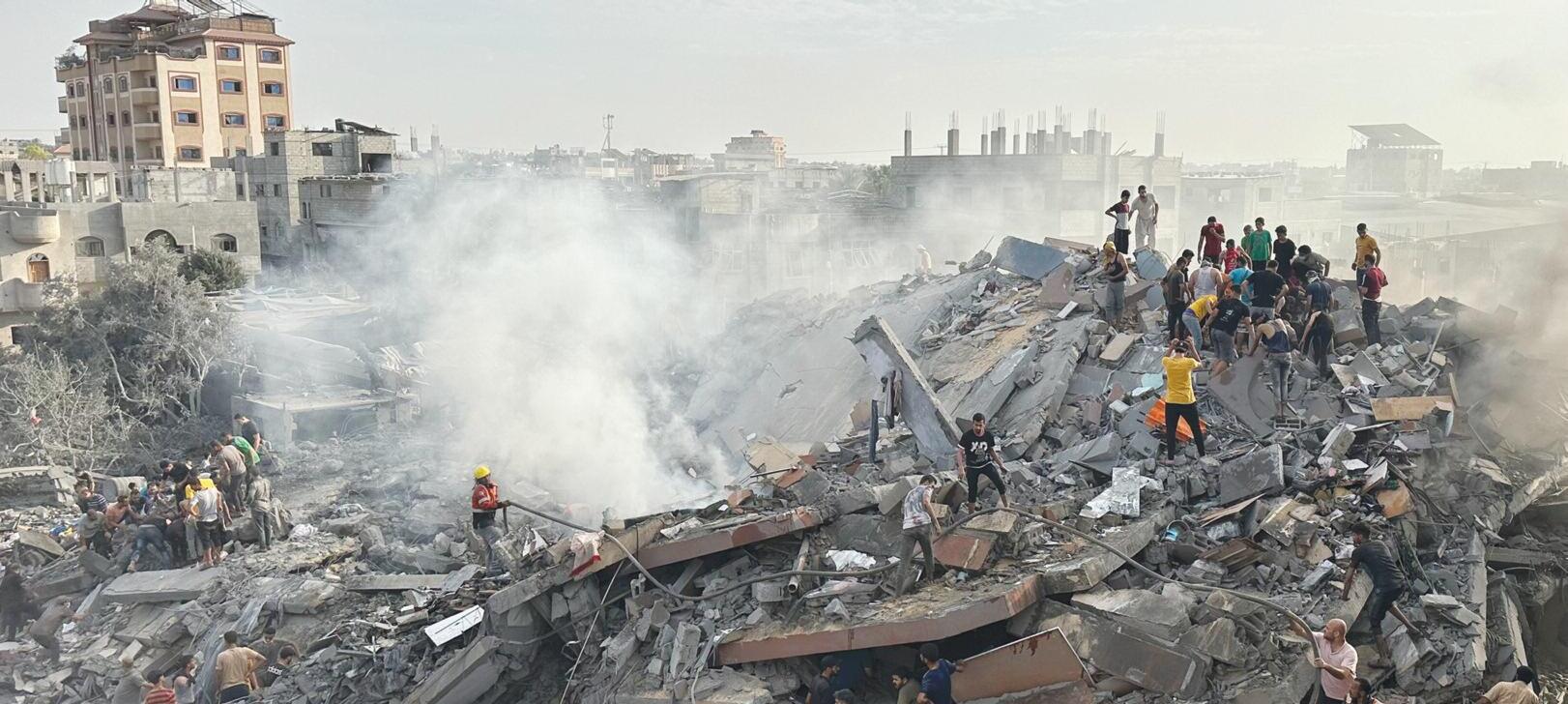
e d t o s t o p p l ay i n g g a m e s a n d
g e t s e r i o u s a b o u t h o l d i n g I s r a e l a c c o u n t a bl e T h i s l e a d s t o o n e
f i n a l q u e s t i o n : W hy, w h e n w e c o n t i nu e t o m a s s i v e ly s u p p ly I s r a e l w i t h w e a p o n s a n d bl o ck a l l e f fo r t s t o s a n c t i o n t h e i r d e p l o r a bl e
b e h av i o rs , d o w e ex p e c t t h a t a ny t h i n g w i l l ch a n g e ?
B a n
g l a d e s h u n d e r s i e g e

haviour during times of crisis The situation in Bangladesh has been witnessing a series of systematic and continuous attacks on its symbolic institutions of sovereignty The Bangladesh Army known for its capability and patriotism stands ready to confront these anti-state forces decisively The patriotic army has the capacity to bring the situation under control within an hour Therefore, it is time to declare that enough is enough in this context it is pertinent to consider the capabilities and track record of the Bangladesh Army The army has faced the line of fire in far more challenging situations in United nations peacekeeping missions than the current unrest in Bangladesh For instance, its missions in South Sudan, Congo, and Sierra Leone have required exceptional bravery and skill in restoring order in highly volatile environments Compared to these international challenges bringing law and order to the present situation in Bangladesh should be a manageable task for the military The experiences of the Bangladesh Army in Un missions provide valuable lessons in handling domestic unrest in South Sudan the Army has dealt with intense ethnic conflicts and large-scale violence its efforts in Congo have involved navigating complex political landscapes and armed militias Similarly, in Sierra Leone, it contributed significantly to stabilizing a nation recovering from a brutal civil war These missions have equipped the Bangladesh Army with the expertise and resilience needed
to address the current crisis at home in light of these developments, the role of the media becomes even more critical Accurate and responsible reporting is essential to prevent misinformation and ensure that the public remains informed about the true nature of the unrest By shedding light on the involvement of anti-state actors and their ulterior motives, the media can help build a more informed and vigilant society As Bangladesh navigates through this turbulent period the collective efforts of the government the military and the media are crucial in safeguarding the nation s stability The portrayal of the ongoing unrest must be accurate, highlighting the involvement of anti-state actors and their true agenda By doing so, the media can play a vital role in informing the public and the international community ensuring that the narrative is not hijacked by those with malicious intent With the support of a vigilant media, a capable military, and an informed citizenry, Bangladesh can overcome this crisis it is a time for unity and resilience for the sake of the nation s future Let our patriotic Army manage this situation until it is suitable for a return to democratic governance
(This was written before the military takeover on August 5 by a Dhaka-based analyst)
The writer can be reached at: writetomahossain@gmail com
W i t h t h e s u p p o r t o f a v i g i l a n t m e d i a , a c
t i s a t i m e fo r u n i t y a n d r e s i l i e n c e , fo r t h e s a k e o f t h
n a t i o n Ês f u t u r e L e t
p a t r i o
A
m
n
s s i t u a t i o n u n t i l i t i s s u i t a bl e fo r a r e t u r n t o d e m o c r a t i c g ov e r n a n c e
Solar scams in Karachi
his actions mirror those of a traitor and coward, reminiscent of his past be-
Global power dynamics are shifting, with Asia increasingly asser ting its influence
n
Iof new
Russian Federation Before its collapse the USSR was a formidable superpower composed of 15 republics, including Russia, Belarus, Ukraine, Chechnya, Georgia, Azerbaijan, and Armenia, since 1922 With a population exceeding 290 million and encompassing over 100 nationalities it was the largest country globally boasting significant nuclear capabilities second only to the United States
Mikhail Gorbachev who led the USSR from 1985 to 1991, served as General Secretary of the Communist Party, Chairman of the Supreme Soviet, and later as President however, the prolonged war induced economic crises inflation and political turmoil within the Communist Party The populace grappled with inflation unemployment failed economic policies and the prolonged Afghan conflict During a failed coup in August 1991, communist hardliners and military elites attempted to overthrow Gorbachev and halt the failing reforms nationwide riots ensued diminishing the government s influence leading to the declaration of independence by Soviet states and culminating in the USSR s disintegration, leaving only Russia Following Gorbachev, Boris yeltsin assumed power in 1991 but was not a transformative leader he stepped down in 1999 and was succeeded by Vladimir Putin who has since alternated between President and Prime Minister Currently Putin is the President of Russia, with ambitions to restore Russia s superpower status in a reminder of the Soviet era Known for his strategic acumen and expertise in political diplomacy Putin has forged strong ties with former Soviet states and neighbouring countries such as China india iran Syria Libya Turkey South Africa, Brazil and other nations in Africa Recognizing that Russia alone cannot rival the USA, he has sought alliances to bolster Russia’s global influence On February 24 2022 Russia invaded Ukraine escalating the Russo-Ukrainian War that began in
The potential for a robust Asian bloc, suppor ted by African and South American allies, signifies a significant shift in global power. The BRICS coalition and other emerging alliances illustrate the growing influence of developing nations in global affairs. As countries like Pakistan navigate their internal challenges and align with these new power structures, the global balance of power continues to evolve, heralding a new era in international relations.
How Hasina joined the ranks of dictators


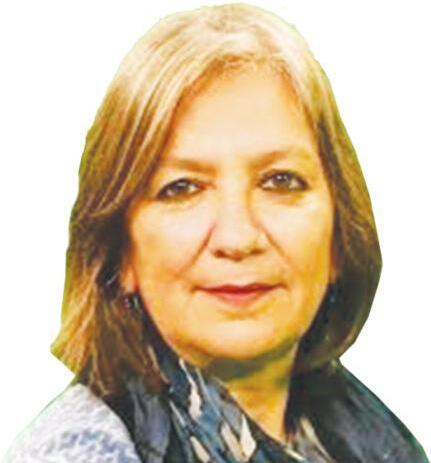
Th i S could not cannot be the work of a student protester we thought, however angry he was with Bangabandhu’s daughter Even if she, Sheikh hasina, kept quiet when more than 300 people were killed by her armed forces in recent weeks via the shootat-sight orders given by none other than her Awami League party general secretary Obaidul Quader, should Bangabandhu have become the target of an ideological pervert who understood little or nothing about the incredible 1971 Liberation War? hasina democracy’s child the daughter of the Father of Bangladesh who could do no wrong; who escaped the midnight massacre on that awful night of August 15, 1975 when the rest of her family was cruelly obliterated only because she and her sister, Rehana, were simply not present in the family house in Dhanmondi; today hasina has joined the ranks of dictators who think little of shedding the blood of others because they have to first protect themselves how could this come to pass? how could hasina allow Obaidul Quader to issue orders to kill those who dared to protest? Clearly, the 1971 revolution was turning upon itself it was eating its own children it is said in Dhaka that Quader said at that fateful press conference two weeks ago that if the students didn t shut down their protests and go home, he would order the Awami League cadres to “sort them out” Did that mean that hasina’s own party cadres shot innocent students on the streets of Dhaka and Chittagong? The jury is out on that assessment But UniCEF has since said that at least 32 children were killed in the July protests how could hasina who lived in Delhi s Pandara Road area with her sister in the wake of the massacre of her entire family, including her teenage brother Russel and watched pro-Pakistani forces come to power in her beloved Bangladesh allow herself to turn into a brittle copycat version of her hated opponents? As she sleeps in an indian safe house at or close to the hindon airbase near Delhi not even allowed to drive to the Capital less than an hour away at the house of her daughter Saima Wazed who works with the WhO hasina should
second time hasina
haughtily threw the decision back into its face, ordering the arrest of the party s key leaders and metaphorically spitting in their face Even if the two women, hasina and BnP leader Khaleda Zia ailing for many years are believed to hate each other s guts the first rule of democracy is to allow the person whose guts you hate the space to say what she wants to say But hasina put out and Delhi, increasingly without choice bought the argument that if she wasn’t supported in her democratic return to power via authoritarian means then the Bay of Bengal would turn into a nest of crocodiles that had been trained and fed by Pakistan The irony is that that assessment was also definitely true PM Modi, just like several prime ministers before him, including indira Gandhi and Atal Bihari Vajpayee realised that new Delhi had no option but to support hasina When the BnP had been in power between 2001 and 2006 not just had india s north-East been pushed into deeper turmoil, but pro-Pakistani elements had sought to push a vast consignment of sophisticated weaponry into Bangladesh via the Chittagong port it is perfectly true that Sheikh hasina’s return to Dhaka was a big boon for india it s not just about the 1971 connection although that stirring beginning is where the special relationship was forged, not just between the Mukti Bahini and india’s armed forces, but also between the peoples of both countries but about the last 15 years since hasina returned as the PM A brand new partnership across the political and economic spectrum between india and hasina s Bangladesh has become a role model for the rest of South Asia Roads, railways, transit rights, civilian travel, defence assistance you name it and india-Bangladesh pop up like two blushing peas in a pod So what happens now? it is clear that the Bangladeshi protester hammering at Mujib s concrete skull in Dhaka on Monday, as well as the attacks against hindu families across the country, is being orchestrated by a dark force
The pro-Pakistani Jamaat-e-islami is the likely contender for that ticket They are back The past is never fully past in Bangladesh it is equally true that there is no one except hasina who has had the raw courage to take on the Jamaat as well as its political face, the BnP But now, hasina has fled At the hindon airbase, she is likely waiting for the UK Foreign Office to accept her request for asylum it probably wasn’t safe for her to stay on in Dhaka while she waited for London to say yes She would have requested india for temporary shelter it was the right thing for the Modi government to let her come it’s what friends are for even when they are in the wrong
Jyoti Malhotra is the Editor-in-Chief of the Tribune


Th E student-led non-political quota reform movement calling for fair treatment towards all job seekers on the basis of merit ended up being such a huge tragedy because of a total lack of sensitivity and understanding of reality on the part of the government and the ruling political party The ongoing student movement which began on July 1 2024 is the manifestation of bigger problems that policymakers have overlooked for decades The problems are economic, social and political in nature Behind the quota movement is the suppressed anger and deprivation in various forms that have existed for a long time Despite economic progress during the last one and a half decades, for which the current government takes credit, there are not enough jobs for the young population in the country With stagnant private investment which was 23 5 percent of the gross domestic product (GDP) in fiscal year (Fy) 2024 the private sector cannot create that many jobs Meanwhile with the increases in salaries, perks, job security and power, government jobs have become the most coveted form of employment in the market Though the official unemployment rate is only 3 53 percent according to the Labour Force Survey (LFS) 2022 youth unemployment stands at eight percent according to the Bangladesh Bureau of Statistics (BBS) The percentage of youth aged 15- 24 years who are not in employment, education, and training (nEET) is 40 67 percent in a skewed labour market the opportunity for decent employment is limited due to which 84 9 percent jobs are in the informal sector
ment realm of the government except for some lip service in national strategies such as the five-year plans Bangladesh has not yet ratified the Employment Policy Convention, 1964 (no 122) of the international Labour Organisation (iLO) on pursuing “full productive and freely chosen employment
An important change in governance during the past one and a half decades is evident through over-bureaucratisation and over-regulation of the economy This has failed to provide skills and jobs to the people leading to unabated corruption and huge resource misuse
Though some government interventions helped achieve growth and improve average social indicators such as health and education, the quality and distributional issues of such advancements are questionable Access to public facilities is unequal Moreover the allocation of public resources to the social sectors is very low and stagnant although both the size of the economy and the national budget have expanded over the years Allocation for the health sector is at 0 74 percent of GDP, and only 1 67 percent of GDP is for education Actual public expenditure for social safety net programme (SSnP) is very low at 1 32 percent of GDP in Fy 2025 even though the government has inflated SSnP allocation figures by adding pensions for government employees, interests for savings certificate, and agricultural subsidy to the calculation On a broader perspective Bangladesh’s persistent growth model which disregarded the rule of law on several occasions has resulted in the establishment of entrenched rent-seeking The culture of the distribution of public contracts,
syeD atiq ul hassan



